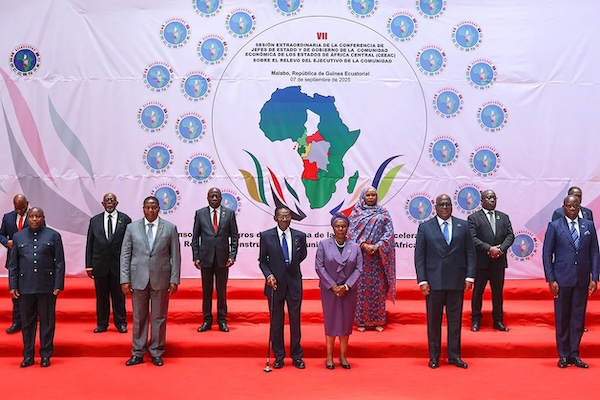-
ECCAS gives DRC and Equatorial Guinea a second chance after candidates were rejected for late file submissions to the regional commission
-
Burundian Ézéchiel Nibigira appointed Commission President with a 45-day mandate to finalize the selection process for the remaining six posts
-
Only 52 of 133 applications were accepted for the seven-member commission, with fierce competition from countries excluded from the previous mandate
The Economic Community of Central African States (ECCAS) has granted the Democratic Republic of Congo (DRC) a reprieve after its candidates for the regional commission were initially rejected for submitting applications late. Meeting in extraordinary session on September 7, 2025, ECCAS heads of state decided to allow both DRC and Equatorial Guinea candidates back into the selection process.
The candidates had been rejected by Forvis Mazars, the firm handling pre-selection for the ECCAS Commission, but will now have their applications reviewed. Burundian Ézéchiel Nibigira, appointed as the new Commission President at the summit, has 45 days to complete the selection process with Forvis Mazars' support.
The ECCAS Commission includes seven positions: President, Vice-President, and commissioners for Political Affairs/Peace/Security, Common Market/Economic/Monetary/Financial Affairs, Environment/Natural Resources/Agriculture/Rural Development, Spatial Planning/Infrastructure, and Gender/Human/Social Development.
Under treaty rules, each member state can hold only one post, with countries absent from the outgoing team getting priority. The DRC, previously represented by Yvette Ngandu Kapinga as Gender Commissioner, faces stiff competition to retain its seat. The Central African Republic, Gabon, São Tomé and Príncipe, and Burundi were excluded from the previous mandate and are determined to secure positions this time.
Competition will be intense, with only 52 of 133 applications from member states accepted so far. The limited number of available seats makes selection particularly challenging. The new leadership team's investiture is scheduled for the November-December heads of state summit.
For the DRC, the second chance represents an opportunity to maintain its influence within the regional bloc, though it will need exceptionally strong candidates to succeed in the competitive environment.
Ronsard Luabeya










